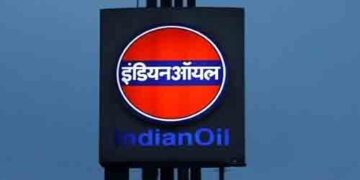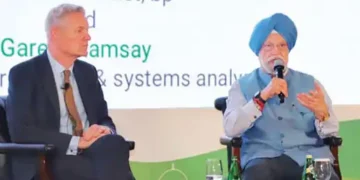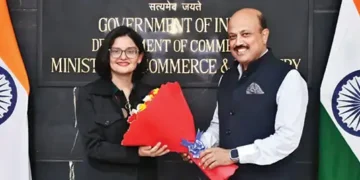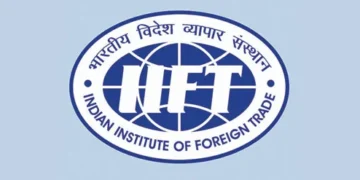Blitz Bureau
NEW DELHI: THE Government is considering further relaxing the norms for setting up petrol pumps in India, the world’s fastest-growing fuel market, as part of its evolving energy security strategy and commitment to decarbonisation, according to an official, reports Moneycontrol.com.
The Ministry of Petroleum and Natural Gas (MoPNG) has appointed an expert committee to review the 2019 guidelines for granting authorisation to market transportation fuels. The panel will assess whether the current framework is effective, suggest ways to align it with the push for alternative fuels and electric mobility, and address implementation issues.
The four-member committee is headed by Sukhmal Jain, former Director (Marketing) at Bharat Petroleum Corporation Ltd (BPCL). Other members include P Manoj Kumar, Director General, Petroleum Planning and Analysis Cell; PS Ravi, representative from the Federation of Indian Petroleum Industry and Arun Kumar, Director (Marketing), MoPNG.
An August 6 notice invited comments and suggestions from stakeholders and the public within 14 days. Until 2019, companies seeking a fuel retail licence had to invest or commit Rs 2,000 crore in oil exploration, refining, pipelines or LNG terminals. • The 2019 reforms reduced this requirement, allowing: • Net worth of Rs 250 crore to sell petrol and diesel in the retail market (with a mandate to set up at least one alternative fuel infrastructure such as CNG, LNG, biofuels or EV charging within three years); • Net worth of Rs 500 crore to sell to both retail and bulk consumers; • Retail licence holders must establish at least 100 outlets, with 5 per cent of them in rural areas within five years.
Why the review matters
Global energy majors have long been eyeing the Indian fuel retail space, but state-run oil marketing companies still dominate the market of 97,804 petrol pumps. Indian Oil Corp (IOC) leads with 40,666 outlets; BPCL has 23,959; HPCL has 23,901. Private players such as Reliance-BP, Nayara Energy, and Shell have a smaller footprint, though interest from global giants remains strong.
Total Energies
with Adani, BP with Reliance, Puma Energy, and Saudi Aramco have all explored entry or expansion. Reliance-BP operates 1,991 outlets, Nayara runs 6,763, and Shell has just 355. By contrast, stateowned companies control the lion’s share of the market.
A further easing of norms could open the field to more domestic and foreign companies, potentially intensifying competition and accelerating the rollout of alternative fuel infrastructure.

































